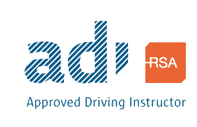Novice Plates
The Department of Transport, Tourism and Sport has announced changes to the driver licensing system that apply to newly qualified novice drivers and first time learner permit holders.
These changes are important road safety measures that form part of the Graduated Driver Licensing (GDL) system, one of the key actions in the current and previous Government Road Safety Strategies aimed at improving how we train, test and licence learner and novice drivers.
The changes are as follows:
- A person granted a first full driving licence on or after 1st August 2014 must display N-plates on the vehicle for a period of 2 years, and during that period display N-plates on any other vehicle in respect of which they get a driving licence. Where the vehicle is a motorcycle, the rider must wear an N – tabard.
- The novice period applies only once ie someone who holds a driving licence for a category of vehicle and who after a period of two years becomes entitled to drive another category, does not become a novice in respect of the new category.
- Non-display of N plates is an offence under traffic law and is punishable by a fine not exceeding €1,000 for a first offence. On becoming a fixed change the failure to display an N-plate will carry 2 penalty points on payment of a fixed charge, or 4 on conviction.
- A lower threshold of seven penalty points leading to disqualification will apply to any driver who is granted their first learner permit on or after 1 August 2014 while they drive under a learner permit, and subsequently during the first two years while they drive under their first driving licence.
- There is no requirement for novice drivers to have an accompanying driver – this is still only the case for learner drivers. However, a novice driver may not act as an accompanying driver for someone who holds a learner permit
The purpose of the GDL system is to reduce the number of collisions, deaths and injuries among learner and novice drivers, particularly among the high risk 17 to 24 year olds, during the learning to drive period and period immediately after they pass their test.
Research tells us that novice drivers are most likely to be killed on our roads in the first two years after passing their test due to their inexperience.
In fact, UK research has revealed that 1 in 5 newly qualified novice drivers has crashed in the first six months after passing their test. Furthermore, available evidence suggests that a driver is considered to be inexperienced until s/he has driven 100,000 kilometres.
Therefore, these measures are designed to protect our most vulnerable road-users so that they can become safe, competent and confident drivers, helping to ensure we have fewer collisions, fatalities and injuries on our roads.
Novice plates, or similar systems, are in place in many other EU countries, and these measures will help to bring Ireland closer into line with Northern Ireland, the UK and other EU jurisdictions.







